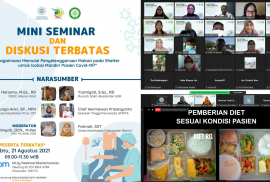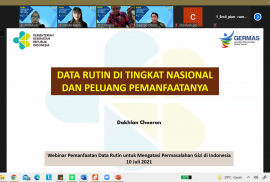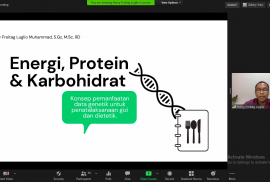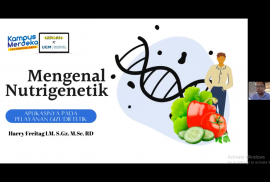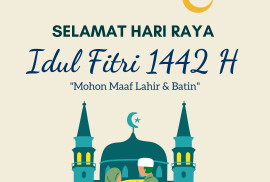YOGYAKARTA-Center for Health and Human Nutrition, Faculty of Medicine, Public Health and Nursing, Universitas Gadjah Mada has conducted an online training about disaster preparedness on nutrition. The 2 hours meeting is held from July 16th to August 28th 2021, every Friday and Saturday with a total of 10 main sessions and one additional session. There are 20 participants, consisting of lecturers from various institutions and public health offices’ staff.
This training is important to give prior knowledge to the participants about disaster management and the critical role of nutrition during disasters. Even before the COVID-19 hits Indonesia, this country is already prone to natural disasters. The Indonesian National Board for Disaster Management (BNPB) reported that more than 1,000 disasters happened across the country, from January to August 2021. Mostly were landslides, earthquakes, floods, volcano eruptions, and others. Since 2020 when the COVID-19 pandemic becoming a national disaster, the Indonesian capabilities in disaster management are put to test. Many higher education institutions and public health offices pay more attention to disaster preparedness. The committee targeted those audiences, to help and create a collaborative atmosphere between academic institutions, experts, health offices, and other sectors to build better disaster management on nutrition.
There are 11 presenters who give materials on this training; 1) dr. Bella Donna, M.Kes (Center for Health Policy and Management, Division of the Health Disaster Management); 2) Eny Supartini, MM (BNPB); 3) Ajeng Herning Danastri, S.Gz (Non-governmental organization); 4) Ninik Sukotjo (Nutrition specialist from UNICEF Indonesia); 5) Yayuk Hartriyanti, SKM, M.Kes (UGM); 6) Evi Fatimah, SKM, MPH (Indonesian Ministry of Health); 7) Mutiara Kusuma, Ph.D (UGM); 8) Dr. Siti Helmyati, DCN, M.Kes (UGM); 9) Miswanto (TAGANA, Social Office of Yogyakarta Province); 10) Sri Widiastuti, M.Si (BNPB); 11) Lieutenant Colonel Tri Harsono, M.Gz., RD (Emergency Hospital Wisma Atlet). All presenters are the expert and have experiences about disaster preparedness which encompass the various topic of this training includes; Introduction to disaster preparedness; the Role of Non-Governmental Organizations and UNICEF in disaster management on nutrition; Rapid Health Assessment (RHA), infants and young child feeding, and management of acute malnutrition in disaster; Lesson learned on disaster management in Yogyakarta; Food and nutrition services for COVID-19 patients and public during this pandemic. [MW]



